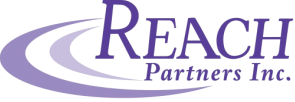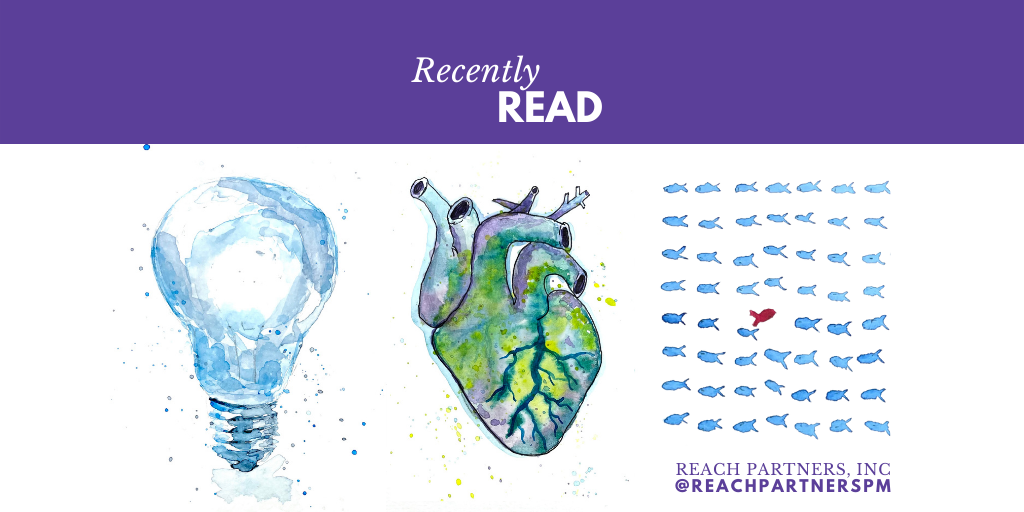|
As you know, we are voracious readers. We regularly read for work, and we both belong to book clubs where we actually read the books! Novels, poetry, memoir, nonfiction – we give it all a try. So, it seems right to kick off 2022 with a few books that we’d recommend to any of our partners. These are more work-related publications, but we think you’ll find them incredibly thoughtful and inspiring. Atlas of the Heart: Making Meaningful Connection and Language of Human Experience by Brene´ Brown
I’ve just started Brene Brown’s most recent work and already see how partners (both personal and professional) can communicate better when they have a shared understanding of what words mean. For example, Brown distinguishes between being “stressed” and “overwhelmed.” She defines “overwhelmed” as that moment when a person can’t even identify what the next step is. A person who is “stressed,” however, is capable of articulating that next step – even if it is asking for help. A shared understanding of these words certainly could benefit our work at Reach. I love asking questions – and so does Rachel. But if I say I’m overwhelmed, that may signal to Rachel that I need to step away for a few minutes. I’m not capable, at that point, of answering any questions. That said, next time I tell myself I’m overwhelmed, I’m going to check myself. If I can identify the next steps, I’m stressed and should ask for help. I can’t wait to remind myself that I’ve got this – even if I need assistance. Language matters and knowing how to describe the difference between similar words will help me be the best human I can be. – Anita Decoding Greatness: How the Best in the World Reverse Engineer Success by Ron Friedman Ron Friedman spoke at a virtual event I helped coordinate last year. When planning the details for the event, I wasn’t that interested in him or his work. I changed my mind after I heard him speak. A few takeaways from his new book Decoding Greatness:
Decoding Greatness has so many more good ideas. I’m constantly making connections between his ideas and our work. – Anita In Defense of Troublemakers: The Power of Dissent in Life and Business by Charlan Nemeth Often our work includes building or gaining consensus with a group of people who may or may not have a regular working relationship. We spend a great deal of time building relationships and trust, and, when we can, making the act of getting of stuff done enjoyable. I’ve read and taken workshops on the art and practice of gathering, meeting and conversation design, engagement, group decision processes, and reaching consensus. We’ve learned through experience that asking people to write their opinion privately before testing the group for consensus minimizes some groupthink (an outcome of consensus that causes real harm). Therefore, I appreciate this book specifically on the art of dissent (thanks to Scott Fry for the recommendation). Dissenters are fundamentally important to group work, yet it is hard. Charlan Nemeth doesn’t sugarcoat how those who speak authentically, with consistency against the majority, are disliked, challenged, punished, and ridiculed. Yet dissent has value, even when it’s wrong. While it‘s hard to be alone in your opinion, “dissent provides an antidote to the power of the majority … [it] breaks that unanimity and increases our independence.” Over and over, through her research and that of others she demonstrates how we follow majorities, right or wrong, even when faced with “obvious” truths. We favor information that confirms our beliefs, yet we prefer information that confirms consensus even when we don’t agree (!). We cave to social support in groups even when we don’t know each other. Her book punctuates the need for divergent thinking when leading, facilitating, or designing group decision making. Authentic dissent improves the quality of discussion, frees up the mind, and stimulates curiosity and scrutiny, bringing us closer to creativity and creative solutions. She also provides a new rule for brainstorming that I’m eager to try. She sums it up: “dissent stimulates us to think divergently—to seek information and consider options in multiple directions, to use more strategies, to be more open than we are on our own.” – Rachel From both of us: happy reading in the new year! Have you picked up a new book at a local bookstore? Please share.
0 Comments
Your comment will be posted after it is approved.
Leave a Reply. |
Reach PartnersYour partners in leadership. Categories
All
Archives
July 2024
|
|
|
Reach Partners, Inc
3330 Fiechtner Dr. Suite 100 Fargo, ND 58103-2321 701-271-8170 Copyright (C) 2024 Reach Partners Inc.
|

